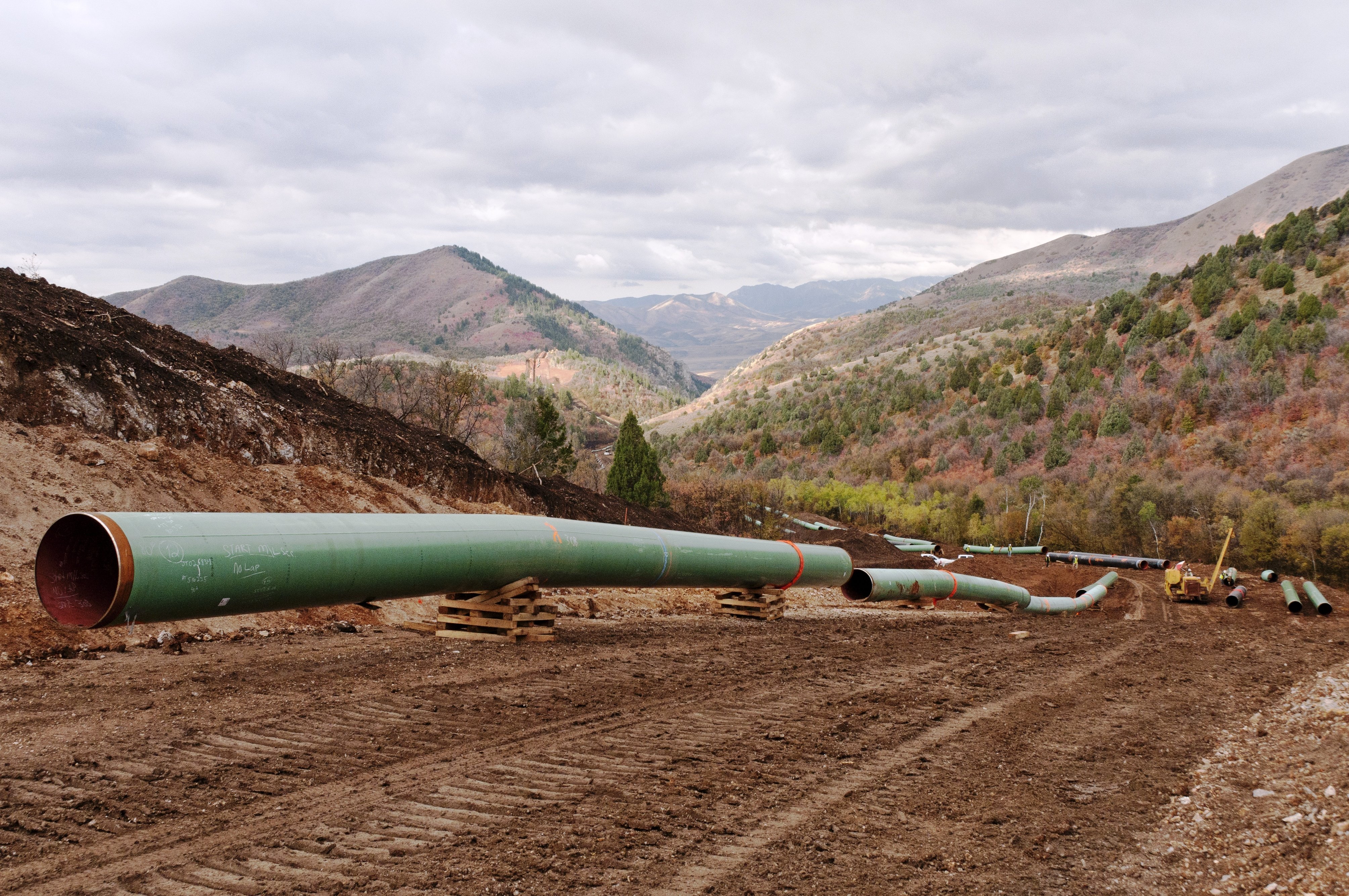Energy
How the Election Will Impact Keystone Pipeline, Oil Exports
Published:
Last Updated:
Tuesday’s Republican Party takeover over the U.S. Senate is guaranteed to increase political demands for President Obama to approve the Keystone XL pipeline and to amend, if not rescind, the 1979 law prohibiting exports of U.S. crude oil. Now that Republicans control both houses of Congress, it is nearly inevitable that the pipeline will get the go-ahead and that exports will be allowed. But neither change is nearly as important as it once was. In fact, it may be kind of a “Who cares?” as far as the industry is concerned. Source: Kinder Morgan Inc.
Source: Kinder Morgan Inc.
Now that Republicans control both the House of Representatives and the Senate, one of the first things the party has promised to do is to force the President to approve the construction of the Keystone XL pipeline. Republicans do not, however, have a veto-proof majority in the Senate, and there’s little reason to believe that the president would not veto any legislation allowing the pipeline to be built.
The larger question, though, is whether TransCanada Corp. (NYSE: TRP) will build the pipeline, even if it gets through Congress and the president. The company has already proposed a 1.1 million barrel a day pipeline running from Alberta to Canada’s east coast that does not cross the U.S. border. The 2,858-mile long Energy East pipeline would send western Canadian crude to Europe, Asia and — surprise — the Gulf Coast of the United States. The cost of sending crude by ship is about $2 to $3 a barrel more than shipping it through a pipeline, but that’s a small price to pay for certainty.
ALSO READ: 7 Commodities With Collapsing Prices
There are also two pipelines proposed to carry Alberta crude to the west coast of Canada: the Northern Gateway pipeline proposal from Enbridge Inc. (NYSE: ENB) and an expansion to the existing Trans Mountain pipeline owned by Kinder Morgan Inc. (NYSE: KMI). All three of the all-Canadian-route pipelines face stiff opposition.
Rail transportation has cut the need for the Keystone XL, and the cost of the pipeline has risen from $5.4 billion to around $8 billion. TransCanada has said that both pipelines are needed and that it believes that both will ultimately be approved. Even if President Obama caves in, environmental groups in the United States could delay construction for years with more legal actions, making the cost for Keystone XL rise even more.
As for crude exports, that train has already left the station. In late June, a federal agency approved the export of a lightly refined condensate. Tuesday, BHP Billiton PLC (NYSE: BHP) said it would “self-classify” its own condensate production as exportable and start shipping the stuff without U.S. government approval. Here is what the company said:
After taking the necessary time to thoroughly examine the issues involved, we concluded that processed condensate is eligible for export. BHP Billiton has worked through a robust due diligence, secured a dedicated supply chain, and has taken steps to ensure the quality of our product for export.
From here it is just a small step to exporting unrefined crude, and that step will almost surely be taken. The good news for U.S. consumers is that a recent review by the U.S. Energy Information Administration has determined that U.S. crude imports will have at most a marginal impact on U.S. pump prices for gasoline.
ALSO READ: Will Oil Drop Below $70 a Barrel?
Ever wanted an extra set of eyes on an investment you’re considering? Now you can speak with up to 3 financial experts in your area for FREE. By simply
clicking here you can begin to match with financial professionals who can help guide you through the financial decisions you’re making. And the best part? The first conversation with them is free.
Click here to match with up to 3 financial pros who would be excited to help you make financial decisions.
Thank you for reading! Have some feedback for us?
Contact the 24/7 Wall St. editorial team.